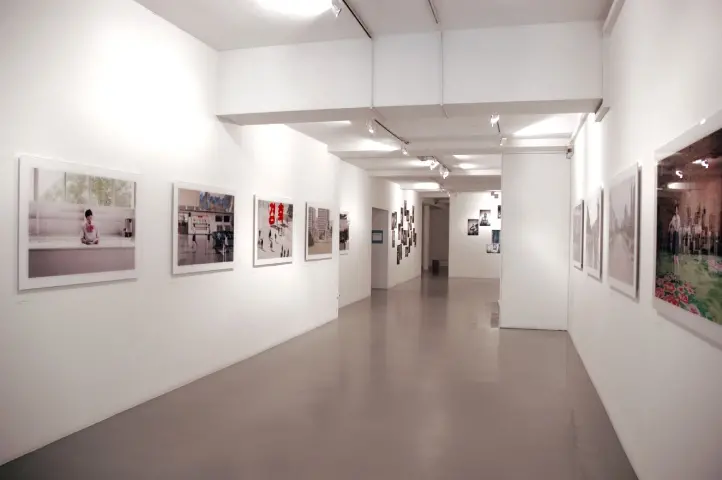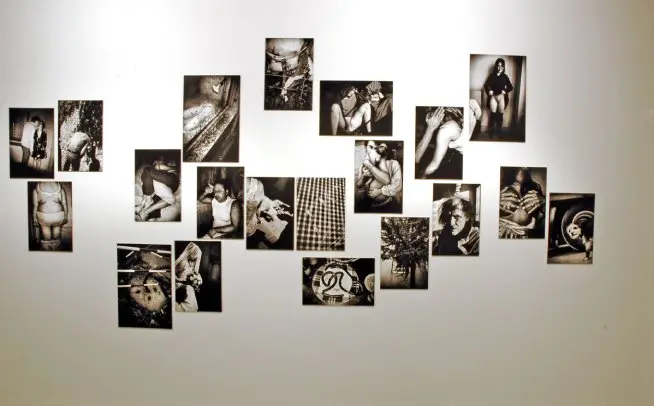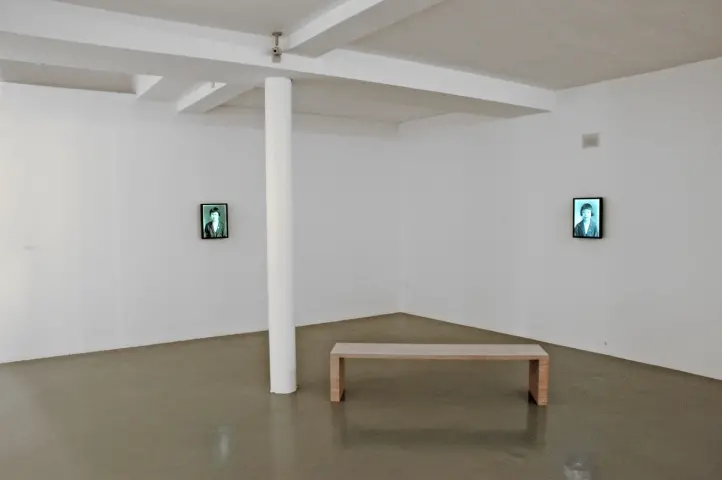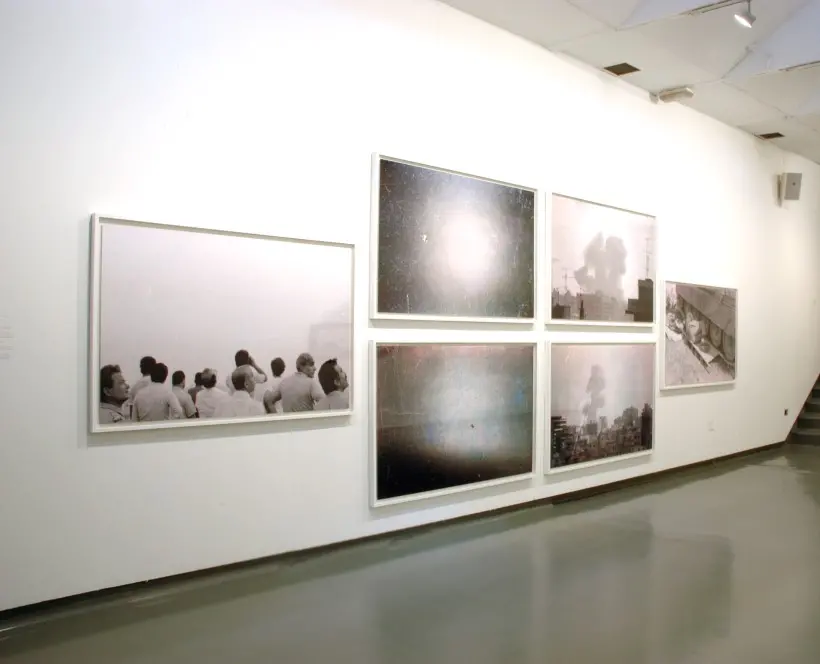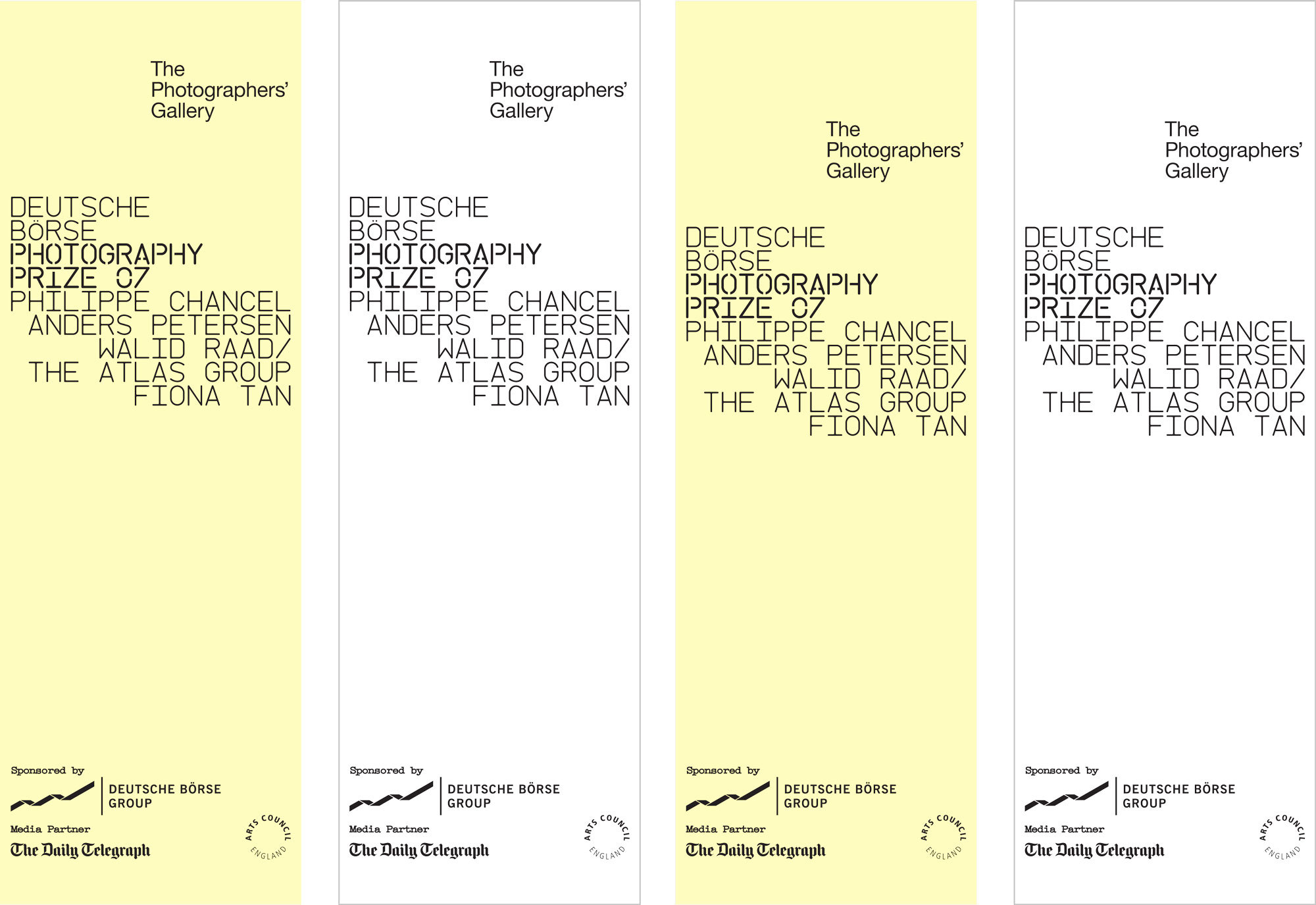
The shortlisted photographers are: Philippe Chancel , Anders Petersen , Fiona Tan and Walid Raad/The Atlas Group. The work represented ranges from photojournalism to intimate social photography and from the exploration of the complexity of culture and place to the documentation of contemporary history. The Deutsche Börse Photography Prize 2007 aims to reward a living photographer, of any nationality, who has made the most significant contribution to the medium of photography in Europe between 1 October 2005 – 30 September 2006. The Photographers’ Gallery continues its commitment to showcasing new talent and highlighting the best of international photographic practice with generous support from the title sponsors, Deutsche Börse Group. The Prize continues as one of the most prominent exhibitions at The Photographers’ Gallery and is amongst the most prestigious international arts awards. Nominations have been made by the Academy, a group of 75 experts invited by The Photographers’ Gallery and representing photography institutions throughout Europe. These nominations were for a significant exhibition or publication and the final shortlist was made by the Jury and chaired by Brett Rogers, Director of The Photographers’ Gallery.
The Nominees
Phillippe Chancel
Philippe Chancel (b. 1959, France) nominated for his exhibition DPRK, shown at the Arles Photography Festival, France (4 July – 17 September 2006). Chancel has been working as a photographer for the last 20 years, investigating the shifting and complex terrain between art, documentary and journalism. Taken in North Korea in 2005, the crisp colour photographs in this series provide a chilling and detached comment on the monumental political narcissism under which the country operates. In DPRK, Chancel manages to capture the all-encompassing aesthetic of communist ideology, as well as the finely orchestrated details of its daily propaganda: a rare glimpse into a totalitarian state usually closed off to Western eyes.
Anders Petersen
Anders Petersen (b. 1944, Sweden) nominated for his exhibition About Gap and St Etienne, shown at the Arles Photography Festival, France (4 July – 17 September 2006). Petersen first became known for his seminal series Café Lehmitz (published in 1978), a daily chronicle of a Hamburg coffee shop frequented by transvestites and prostitutes. Since then, Petersen has continued to explore people on the fringes of society through his camera, and developed his own distinct style - a raw and intimate social photography aiming to show the hidden aspects of human nature. The series About Gap and St Etienne, which resulted from a two-week residency in these two southern French towns in 2005, exudes a poetic sadness, restlessness and sense of urgency that characterises his photography.
Fiona Tan
Fiona Tan (b. 1966, Indonesia), nominated for her exhibition Mirror Maker at Landesgalerie in Linz, Austria (1 June – 20 August 2006). The human subject is central to Tan’s work through which she questions and explores the complexities of culture and place and how these elements come to shape our individual identity. Combining both photographic and film footage in her practice, the exhibition included past and more recent projects dealing with portraiture and the nature of photography; including Vox Populi (2004), a photographic installation that captures key moments in the lives of more than 100 Norwegian families over several generations, and Countenance, a typological inquiry in 200 filmic portraits, produced in Berlin in 2002.
The Atlas Group, a project by Walid Raad
The Atlas Group, a project by Walid Raad (b. 1967, Lebanon), has been nominated for the exhibition The Atlas Group Project at Nationalgalerie im Hamburger Bahnhof - Museum für Gegenwart in Berlin, Germany (22 September 2006 – 7 January 2007). The Atlas Group is a project undertaken by Walid Raad between 1989 and 2004 to research and document the contemporary history of Lebanon. However, the authenticity of the photographic and video documents in this archive are continuously queried, leaving the viewer uncertain how history - in particular one marked by the trauma of civil war - can be told and visually represented. The ‘documents’ in the exhibition appear based on a person’s actual memories but also draw on cultural fantasies constructed from the material of collective memories.
The Jury
The Jury for 2007 is: Krysztof Candrowicz (Poland), Director, Lodz Art Center; Shirana Shahbazi, (Iran) artist & winner of The Photographers’ Gallery’s 2002 Citigroup Photography Prize; Urs Stahel, (Switzerland) Director, Fotomuseum Winterthur and Anne-Marie Beckmann, (Frankfurt), Curator, Art Collection Deutsche Börse.
The Winner
Walid Raad /The Atlas Group (b. 1967, Lebanon), was awarded the Deutsche Börse Photography Prize for 2007. The Prize value is £30,000 and is awarded to one of the four shortlisted international photographers for their significant contribution to the medium of photography in Europe between 1 October 2005 – 30 September 2006. The Prize is on show and presented by The Photographers’ Gallery, the exhibition continues until 9 April 2007. Walid Raad /The Atlas Group was awarded the Prize for the recent exhibition The Atlas Group Project at Nationalgalerie im Hamburger Bahnhof - Museum für Gegenwart in Berlin, Germany (22 September 2006 – 7 January 2007). Undertaken between 1989 and 2004, The Atlas Group is a project to research and document the contemporary history of Lebanon. In this project the authenticity of photographic and video documents in the ‘archive’ are queried leaving the viewer uncertain as to how history - in particular one marked by the trauma of civil war - can be told and visually represented. Appearing to be based on one person’s memories, it also draw on cultural fantasies constructed from the material of the collective memory.
Brett Rogers, Chair of the Jury and Director of The Photographers’ Gallery, said: ‘This year’s shortlist demonstrates the immediacy and power of the photographic image when pushed to its limits by contemporary artists and photographers. Each of them explores important global issues but none more urgent and powerful than that of Walid Raad /The Atlas Group. Raad’s work opens up new possibilities for reinterpreting photography’s role in the construction of ‘history’ especially in connection with his main project on the Lebanese Civil Wars. He demonstrates a new form of conceptual practice, one that combines the poetic with the political, and yet remains playfully engaging. Through his work Walid Raad questions the role of authorship and authenticity ‘ fact as a process’ presenting the world and its functions as a complex layer of systems.’
